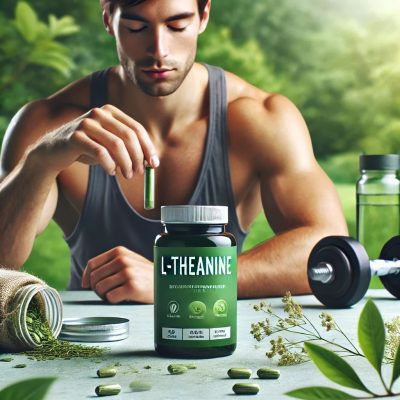When it comes to fitness, supplements are often marketed as magic bullets for muscle growth, fat loss, or improved performance. With endless products on the market promising faster results, it’s easy to feel overwhelmed and unsure about what actually works and what’s just hype. The truth is, while some supplements can support your fitness goals, many are unnecessary or even ineffective.
In this post, we’ll break down popular fitness supplements, explain which ones are worth your money, and help you avoid wasting cash on those that don’t live up to the hype.
1. Supplements That Work: Proven by Science
Here are some supplements that are backed by research and can provide real benefits for your fitness journey:
1.1. Protein Powder
- What it does: Protein powders like whey, casein, or plant-based options (pea, soy, hemp) are convenient ways to boost your protein intake, especially if you struggle to get enough through whole foods. Protein is essential for muscle repair and growth, and consuming enough daily can help you achieve your strength and muscle-building goals.
- Who it’s for: Anyone looking to build muscle, improve recovery, or maintain muscle mass, especially those with higher protein needs.
- Best use: Use protein powder post-workout or as part of your daily diet to help meet your protein goals. Aim for 20-30 grams of protein per serving.
1.2. Creatine Monohydrate
- What it does: Creatine is one of the most researched and effective supplements for improving strength, power, and muscle growth. It works by increasing your body’s ability to produce energy during high-intensity workouts, allowing you to lift heavier and train harder.
- Who it’s for: Athletes involved in strength training, sprinting, or any high-intensity activities.
- Best use: Take 3-5 grams of creatine monohydrate daily. It’s effective whether you take it pre-workout or post-workout, as long as you take it consistently.
1.3. Caffeine
- What it does: Caffeine is a well-known stimulant that boosts energy, focus, and performance during exercise. It can enhance endurance, increase strength, and reduce perceived effort, making your workouts feel easier.
- Who it’s for: Athletes looking to improve endurance, strength, or overall workout intensity.
- Best use: Consume caffeine 30-60 minutes before your workout. Typical doses range from 150-300 mg, but be cautious of your tolerance and avoid taking it too late in the day to prevent sleep disruption.
1.4. Beta-Alanine
- What it does: Beta-alanine helps buffer acid in muscles, which can delay fatigue and improve endurance during high-intensity exercise. It’s particularly useful for athletes involved in activities that require sustained bursts of effort, like sprinting or HIIT.
- Who it’s for: Athletes focused on high-intensity, short-duration exercise.
- Best use: Take 2-5 grams daily. Beta-alanine works best when taken regularly over time, not just before a workout.
1.5. Branched-Chain Amino Acids (BCAAs)
- What it does: BCAAs—leucine, isoleucine, and valine—are amino acids that play a role in muscle recovery and reducing muscle soreness after exercise. However, if you already consume adequate protein through your diet, BCAAs may not provide much additional benefit.
- Who it’s for: Athletes who train frequently and intensely, especially those on low-protein diets.
- Best use: If using BCAAs, take 5-10 grams before or during your workout to support muscle recovery.
2. Supplements That Are a Waste of Money
Some supplements are heavily marketed but provide little to no real benefit. Here are a few that you might want to skip:
2.1. Fat Burners
- What they claim: Fat burners promise to accelerate fat loss by increasing metabolism, burning calories, or reducing appetite. They often contain caffeine or other stimulants, but the effects are generally mild at best.
- The reality: No supplement can replace the fundamentals of fat loss: a calorie deficit through diet and exercise. Many fat burners contain high levels of stimulants, which can lead to jitteriness, anxiety, and other side effects without significantly speeding up fat loss.
- Verdict: Save your money. Focus on maintaining a healthy diet and consistent exercise routine for sustainable fat loss.
2.2. Testosterone Boosters
- What they claim: Testosterone boosters promise to increase muscle mass, strength, and athletic performance by naturally boosting your testosterone levels.
- The reality: Most over-the-counter testosterone boosters don’t have enough of an effect to significantly impact muscle growth or performance. Only medical interventions, like prescription testosterone replacement therapy, can meaningfully affect hormone levels.
- Verdict: Skip these supplements unless directed by a healthcare provider.
2.3. Pre-Workout Blends
- What they claim: Pre-workout supplements often promise increased energy, focus, and pump during your workout. They typically contain caffeine, creatine, beta-alanine, and other stimulants.
- The reality: While some pre-workouts do provide a temporary energy boost, they often come at a high cost and are unnecessary for most people. You can get the same benefits by taking caffeine and creatine separately, without the added fillers or cost.
- Verdict: Pre-workouts can be expensive and unnecessary. Stick to caffeine or creatine if you want a boost.
2.4. Glutamine
- What it claims: Glutamine is marketed as a supplement that helps with muscle recovery and immune support, especially after intense exercise.
- The reality: While glutamine is an important amino acid, your body produces enough on its own, and dietary intake is generally sufficient for most athletes. Research shows little evidence that glutamine supplementation significantly enhances muscle recovery or performance.
- Verdict: Skip this supplement unless advised by a professional.
3. When Supplements Can Be Beneficial
Although whole foods should always form the foundation of your diet, supplements can help in certain situations, such as:
- When you’re not getting enough from food: If you struggle to meet your protein or calorie needs, or if you’re vegan or vegetarian, supplements like protein powder or B12 can help fill nutritional gaps.
- For convenience: Supplements can make it easier to hit your nutrition goals when you’re short on time. A quick protein shake post-workout, for example, is a practical solution when you don’t have time for a full meal.
- When medically necessary: If you have a diagnosed deficiency (like iron or vitamin D), supplements can be essential for restoring proper levels and improving your health and performance.
4. How to Choose the Right Supplements
If you decide to use supplements, here are a few tips to ensure you’re choosing wisely:
- Do your research: Look for supplements that are backed by peer-reviewed research, not just marketing claims.
- Buy from reputable brands: Choose supplements from trusted companies that have undergone third-party testing for quality and safety.
- Check the ingredients: Avoid supplements with fillers, artificial sweeteners, or unnecessary ingredients. Stick to products with simple, effective formulas.
5. Conclusion: Focus on the Fundamentals
Supplements can play a role in supporting your fitness goals, but they aren’t a replacement for a balanced diet, regular exercise, and proper recovery. Focus first on the basics—consistent training, a nutrient-rich diet, and adequate rest—and use supplements to enhance, not replace, those foundations.
By sticking to proven supplements like protein powder, creatine, and caffeine, you can make the most of your training without wasting money on products that won’t deliver real results.
What supplements have worked for you, and which ones have you found to be a waste? Share your experience in the comments below!












